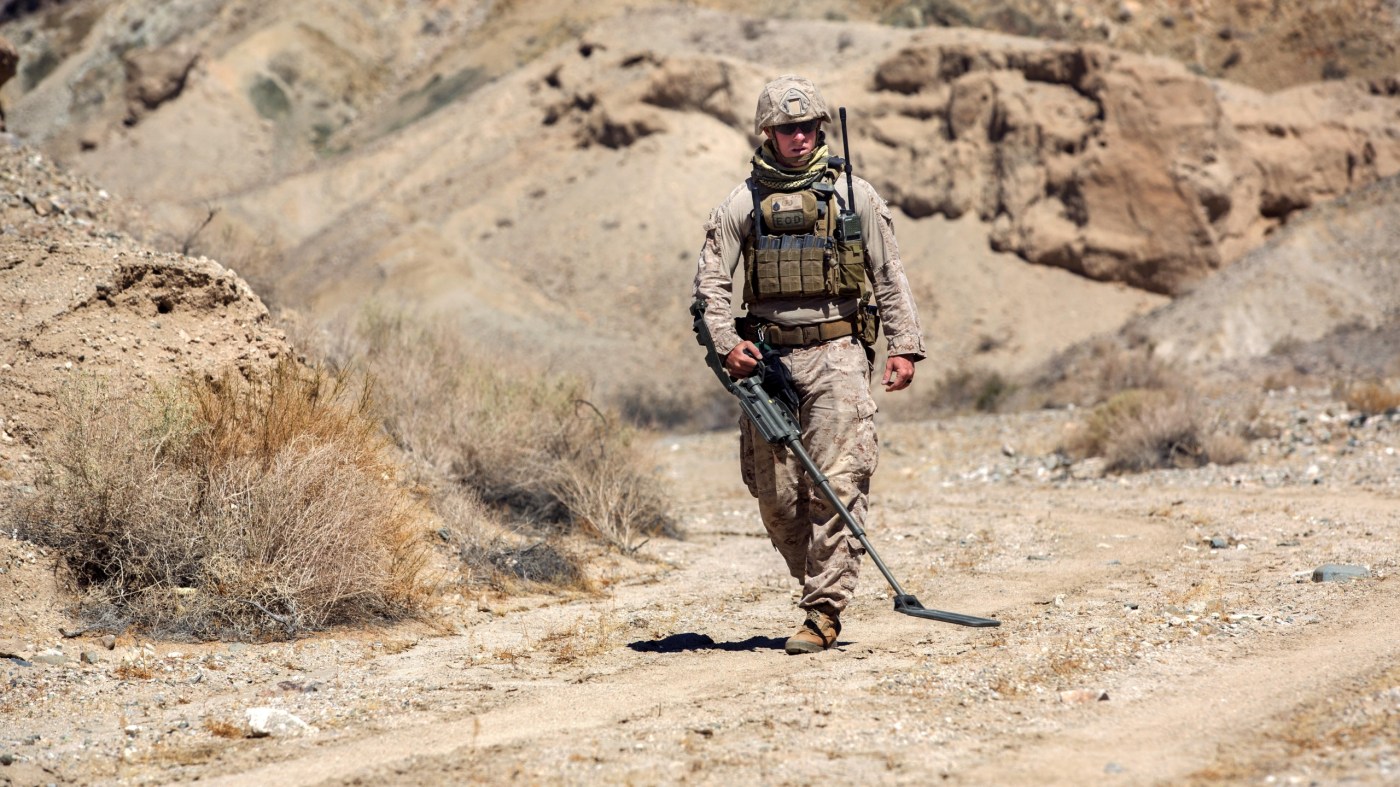A new VA study finds that blast exposure is related to mental health symptoms in combat Veterans beyond the effects of mild traumatic brain injury or PTSD.
The findings appeared in the “Journal of Psychiatric Research” in September 2021.
The study, believed to be the first of its kind because of how it evaluated blast exposure, involved interviews and self-report measures. It included 275 Veterans who experienced combat during the post-9/11 conflicts in Iraq and Afghanistan. More than 70% had a history of being exposed to a blast, which was defined as any notable pressure wave resulting from an explosion. Nearly 50% had been diagnosed with a mild traumatic brain injury (mild TBI), which is essentially a concussion, and 30% with PTSD.
“Exposure to blast is an independent factor influencing psychiatric symptoms in Veterans beyond PTSD and mild TBI,” the researchers write. “Blast exposure… should be considered in the [cause] of psychiatric symptom presentation and complaints. Further, severity of psychological distress due to the combat environment may explain how [it impacts] the relationship between mild TBI and symptom outcomes.”
Researchers surprised
Dr. Sarah Martindale, a research scientist at the W.G. (Bill) Hefner VA Medical Center in Salisbury, North Carolina, and a member of VA’s Mid-Atlantic MIRECC (Mental Illness Research Education and Clinical Center), led the study. Dr. Jared Rowland, Dr. Anna Ord and Lakeysha Rule, all of whom are also affiliated with the Salisbury VA and the Mid-Atlantic MIRECC, co-authored the paper.
Martindale and her colleagues expected blast exposure to impact the Veterans’ mental state but not to the extent it did.
“We see these outcomes when we are working with Veterans,” Martindale says. “This is the reason we wanted to investigate blast. At the same time, we know how prevalent PTSD is in our research population, and we know that PTSD accounts for many of our outcomes. That’s why we were somewhat surprised that it had a significant effect on the reported symptoms beyond PTSD and TBI.”
Definition of blast exposure not clear
Blast exposure is common among service members. But its chronic psychiatric effects are not well-understood. Until recently, most available research on the effects of blast exposure relied on interviews to diagnose traumatic brain injury, the signature wound from the post-9/11 conflicts. These interviews have evaluated blast exposure within the context of a TBI due to a blast, but not characteristics of the blast itself, according to Martindale.
Plus, there’s nothing definitive as to what constitutes blast exposure, creating a challenge all its own when studying the topic of blasts. However, it’s clear that blast exposure doesn’t need to cause a mild TBI to have a negative effect.
“Each group studying blast exposure in humans defines it differently, some based on distance, some based on the measurement of the blast wave, and some based on injury,” says Rowland, a research psychologist at the Salisbury VA. “But there is not a widely accepted or used definition of blast exposure. The long answer is complex. Pre-clinical research on animal models has shown that exposure to a blast wave of a certain intensity will cause damage to the brain and internal organs. The intensity of the blast wave fades quickly with the distance from the blast, so that critical level of intensity can occur at different distances depending on the strength of the blast, the environment in which it occurs, and the protective factors that are present.”
Those factors include body armor and ear and eye protection, as well as being behind cover or the existence of an object between the person and the blast.
More Information
Click here to read the full story.
Click here to learn more about VA research.
Topics in this story
More Stories
Bob Jesse Award celebrates the achievements of a VA employee and a team or department that exemplifies innovative practices within VA.
The Medical Foster Home program offers Veterans an alternative to nursing homes.
Watch the Under Secretary for Health and a panel of experts discuss VA Health Connect tele-emergency care.






